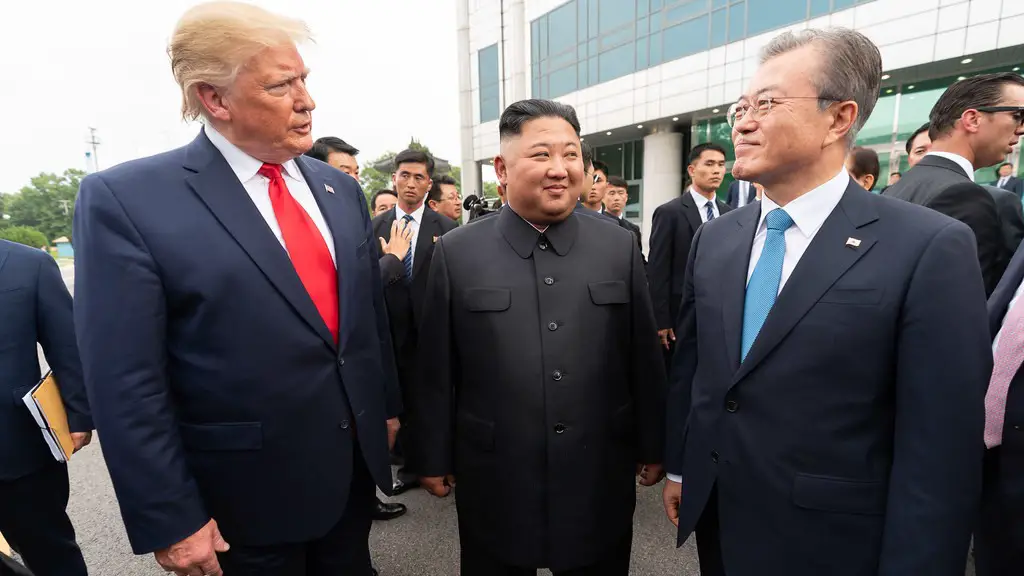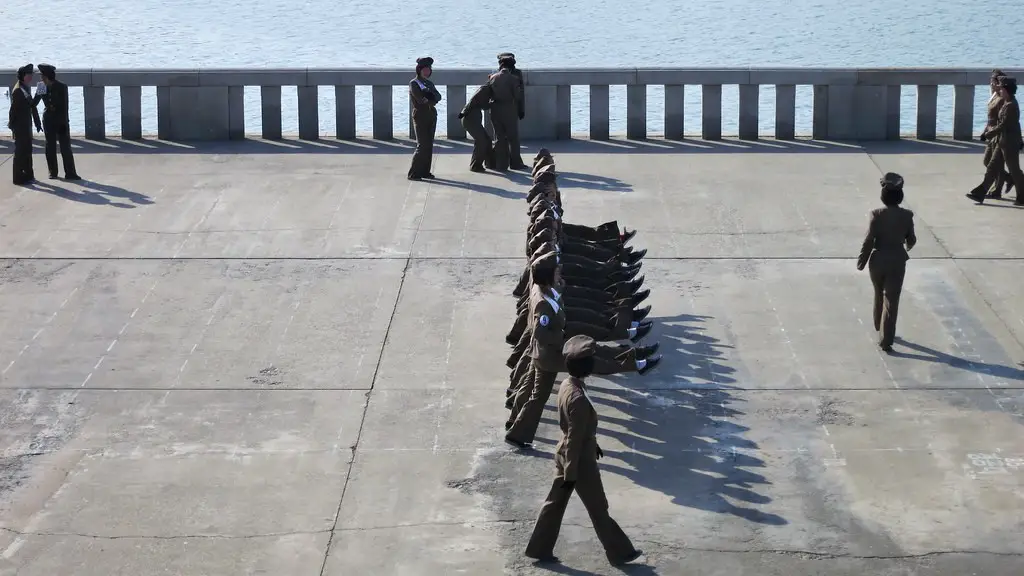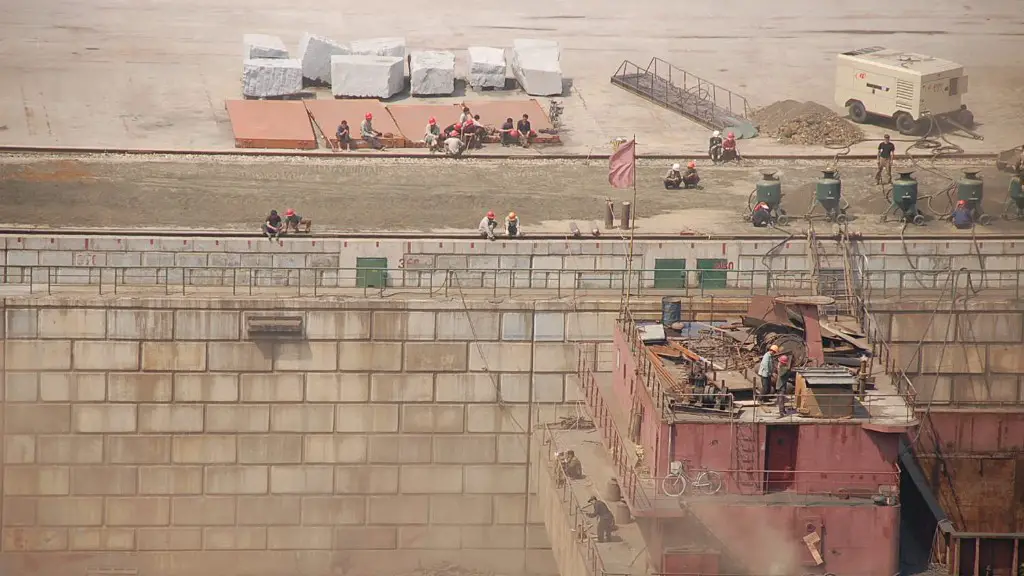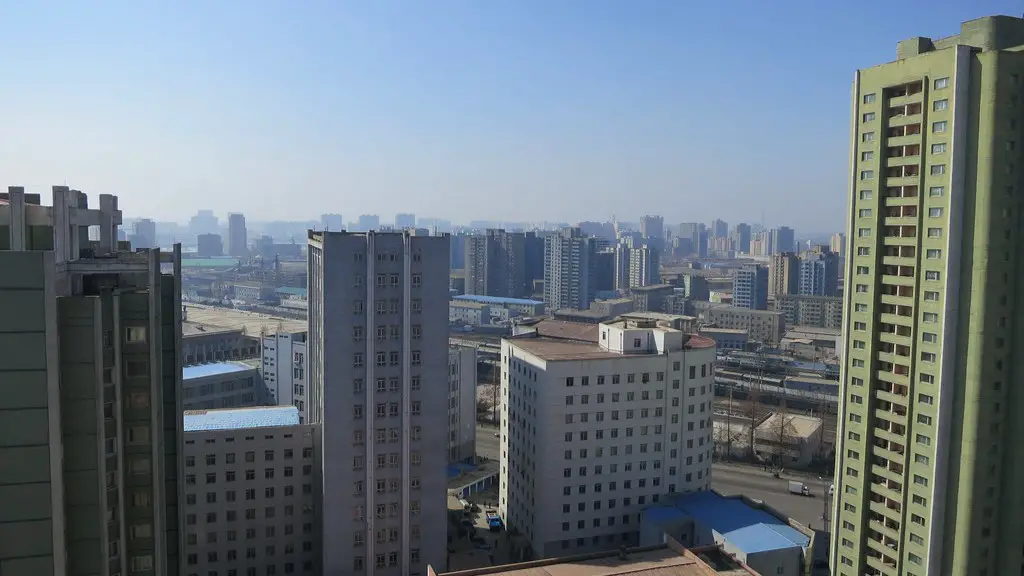China’s Relation With North Korea
China’s relationship with North Korea dates back to 1950, shortly after the establishment of the People’s Republic of China (PRC). According to John Delury, associate professor at Yonsei University in Seoul, “They were two fledgling revolutionary states, led by national liberators, who saw in each other an ideological reflection, a strategic ally, and a diplomatic necessity.” This strong bond has been perpetuated by China’s continued support for North Korea, which is emphasized by Beijing’s commitment to censorious infrastructure and economic sanctions.
China is North Korea’s only real ally, providing crucial diplomatic and economic assistance. Ever since the establishment of diplomatic relations, China and North Korea have had close political and economic ties. According to Chinese Foreign Minister Wang Yi, the relationship between the two nations has “entered a new stage and shows strong vitality”. In 2017, trade between the two nations accounted for 90% of all North Korean exports, with 80% of North Korean imports came from China.
Moreover, Beijing has used its status as a major world power and as a member of the UN Security Council to protect and provide economic and diplomatic assistance to North Korea. In fact, it has actively blocked international efforts to impose stronger economic sanctions on the pariah state. For example, in 2016, when the United States proposed a resolution to impose tougher sanctions on North Korea, China called for a watered-down version of the resolution. China has also been accused of “tacitly allowing” shipments of oil and coal to North Korea in violation of UN sanctions.
Given this close political and economic relationship, it is clear that China would be reluctant to see a war involving North Korea. This reluctance is likely to remain even in the face of increased American pressure, as seen in President Donald Trump’s repeated warnings of military action. It is difficult to predict what China’s reaction would be if the United States launched a full-scale military attack on the Hermit Kingdom. However, it is highly likely that China would offer diplomatic and economic support, if not military support, to North Korea in the event of a war.
Non-Military Support To North Korea
In the event of a war, Beijing is likely to offer the North Korean regime non-military support. This might include diplomatic interventions such as condemning the American attack, or providing diplomatic help in negotiations between the North and other international powers. Additionally, China might provide economic aid to North Korea to mitigate the economic losses it would be sure to suffer during a war. This could come in the form of food, medical supplies, fuel, or even infrastructure investment. This type of support is essential to the survival of the regime, as the state is heavily dependent on Chinese economic assistance.
However, these non-military measures are unlikely to be enough to protect North Korea’s fragile regime. The economic and diplomatic assistance China provides are not enough to defend North Korea against the United States’ military might. Therefore, even if China would be willing to help, it is likely that North Korea would still suffer significant losses in any war with the United States.
Moreover, China’s support will likely be constrained by the potential reaction of the international community. China is keen to maintain good relations with the other nations, and fears the potential backlash from the international community if it comes to the aid of North Korea. Such backlash could come in the form of economic or diplomatic sanctions from other countries in the region.
Furthermore, China would also be wary of the potential for a US-initiated regime change in North Korea, something that Beijing would not stand for. This fear is probably especially true given the increasing tensions between the two countries, and China’s growing concerns about the increasing US military presence in East and Southeast Asia.
Impact of War on China
China would also consider the impact that war would have on its own political and economic interests. Beijing is deeply concerned about the potential humanitarian and economic implications of a war. In the past, wars have caused huge amounts of disruption to international trade, something which China has become increasingly dependent on. Thus, the Chinese are very cognizant of the potential of a war between North Korea and the United States affecting their own economic interests.
Another factor for Beijing to consider is the potential for a mass exodus of refugees from North Korea into China. During the Korean War in the 1950s, over one million North Koreans fled to China, and there is the potential for a similar scenario in the event of a war. Such a scenario could severely cripple the Chinese economy, since the refugees would most likely require substantial aid from the government. Additionally, it would also put enormous pressure on the already strained Sino-North Korean relationship.
Finally, China is likely to consider the potential impact a war could have on its relationship with the United States. China and the United States have an increasing number of disputes, and a war between North Korea and the United States could serve as a tipping point, especially given the increasing tension between the two countries. This could potentially have implications for the Sino-American trade relationship, the most important economic relationship of the 21st century.
Military Support To North Korea
If war between North Korea and the United States were to break out, it is most likely that China will not offer North Korea any military support. Beijing has no interest in going to war with the United States and would be aware of the futility of such a move. Moreover, any kind of military action by China would surely draw condemnation from the international community, something Beijing does not want. Instead, China is likely to stay on the sidelines and offer only diplomatic and economic assistance.
Nevertheless, China would likely step in if the situation were to worsen to the point where US forces threatened Beijing directly. In such a scenario, Beijing could come to North Korea’s aid if it felt that its own interests were under threat. Nevertheless, this seems highly unlikely, given the increasing tension between the two nations and the fact that China would be well aware of the overwhelming military superiority of the United States.
However, China is likely to take measures to ensure that any war between North Korea and the United States is not devastating. This could come in the form of more economic assistance to North Korea, or diplomatic pressure on the United States to ensure that it does not deploy overwhelming force. This would be in line with China’s past behavior, as the nation has always preferred to act through diplomatic channels rather than military ones.
International Reactions To War
The international community will likely take a strong stance if war were to break out between North Korea and the United States. Other nations in the region, such as South Korea and Japan, would likely condemn any US-initiated military action against North Korea, and would likely call on the United States to take more diplomatic measures instead. Additionally, other nations across the world, such as European and South American countries, would likely express concern over the situation and call for diplomatic solutions.
Moreover, these countries may also impose economic or diplomatic sanctions on the US if it were to launch a war against North Korea, especially if China is seen to be supporting the North Korean regime. Given the size and influence of the US economy, such sanctions could have a significant impact on the American economy.
On the other hand, the international community may also take a more conciliatory stance and attempt to reengage in dialogue with North Korea. This would be especially true if China were seen to be taking a positive and proactive role in diplomatic negotiations between North Korea and the United States. If this were to happen, then the risk of war could be substantially reduced.
Alternatives To War
In the event of a war between North Korea and the United States, it is likely that war could still be avoided if all sides are open to engagement and dialogue. In such a scenario, China could play a key role in helping to facilitate negotiations between the two sides. This could include providing diplomatic cover and economic incentives that could help to bring both sides back to the negotiating table. Furthermore, China could also provide humanitarian assistance to any refugees that may result from a war.
Additionally, the international community could help to reduce tensions by encouraging pathways for diplomatic negotiations, such as reengagement between North Korea and the United States. This could help to reduce the potential for a conflict, as well as provide both sides a pathway out of the conflict. Additionally, it could also provide both sides with a platform for a future, constructive dialogue.
Finally, the United Nations could also play a role in helping to reduce the risk of conflict. The United Nations could act as a mediator between the two sides, or even send peacekeeping forces to the region to help ensure the safety of both sides. This could provide the necessary security and stability necessary to facilitate diplomatic negotiations.
Potential Outcomes To War
Regardless of the outcome, war between North Korea and the United States would be devastating for the region and beyond. The destruction that would accompany such a conflict would be immense, as would the number of casualties. Additionally, the economic disruption and refugees that would be created by a war would be immense, and could have lasting implications on the region. Moreover, the United States would likely take a heavy economic and diplomatic toll from such a conflict.
Furthermore, such a conflict could also lead to an increased military presence in the region, with US forces potentially deploying for long periods of time. This would strain the US’s already strained relationship with China, as well as its relationship with other nations in the region. Moreover, such a conflict could also lead to an arms race in the region, as nations try to keep up with US military might.
Finally, even if North Korea were to emerge victorious from such a conflict, it would still be left devastated by the conflict. The regime would be left heavily reliant on Chinese economic and political support, and would be facing international condemnation. Moreover, the fragile regime would be severely weakened in the event of a conflict, and would be left in a very precarious situation.





